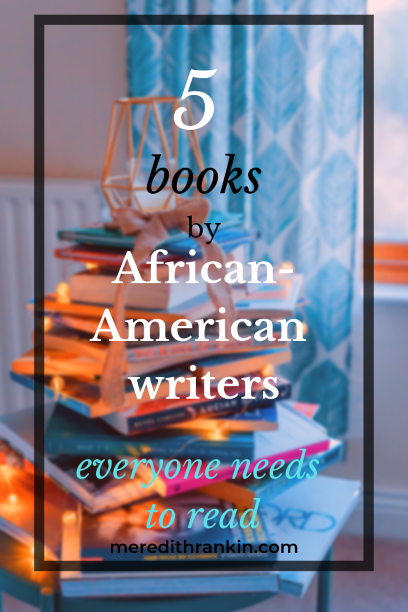I don’t know why I never read this book in high school, but I first encountered it my senior year of college in an American lit class. I thought I knew quite a bit about slavery in America. I didn’t. (In retrospect, it was probably a good thing that I didn’t read it at my private–and mostly white–high school. Even if the teachers managed not to ruin it, the inevitable nastiness/bickering/racist attitudes of my classmates would have.)
This book turned the world upside down. When I read Douglass’s account of his aunt being whipped, I felt physically pained. I was sitting in the student lounge and I had to stop and gasp for breath. It felt so real. It felt real because it was real, even over a century later.
That’s the moment when this young white woman woke up and realized that slavery is evil. That racism is evil. That people with my skin color have hurt and dominated and destroyed the humanity of other people for centuries, and continue to do so, and that is evil.
Intellectually, I knew this already. But my heart and soul didn’t quite grasp it. Douglass’s autobiography disproved any nonsense about “good” and “bad” slave owners. It also showed a man determined to be seen as a man and not a slave. Read this quote of his on the value of reading.


This is one of the few books that have ever made me cry. Even when I merely pull it off the shelf and read the ending, I tear up.
Beloved, by Toni Morrison.
I read this novel the same semester I read Douglass’s Autobiography. I can’t say that I “enjoy” her work. Each novel makes me uncomfortable and unsettled in my own skin. There’s plenty in Beloved to appreciate from a female/feminist perspective. Ultimately, though, to say that I enjoy the book would be to appropriate its blackness for my own use. It’s violent, disturbing, and beautiful.
Conception, by Kalisha Buckhanon.
This is one of the most unusual and life-affirming books I have read. It’s written from the point of view of an unborn soul seeking to be born. It longs to be born. Yet over and over, the women’s bodies where the soul temporarily resides are shattered. A slave. A battered wife. A young girl who’s never been outside the inner city of Chicago. The narrative is by turns lyrical, filled with poetic words, and brutally realistic, filled with obscenities. And it works.
He’s known for his crime novels, but the man could write a grocery list and it’d be intriguing. I particularly like the Leonid McGill series.
Have you read any of these books? Do you have any others to add to this list? Tell me what you think!

